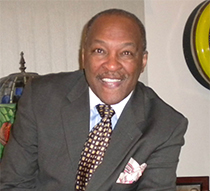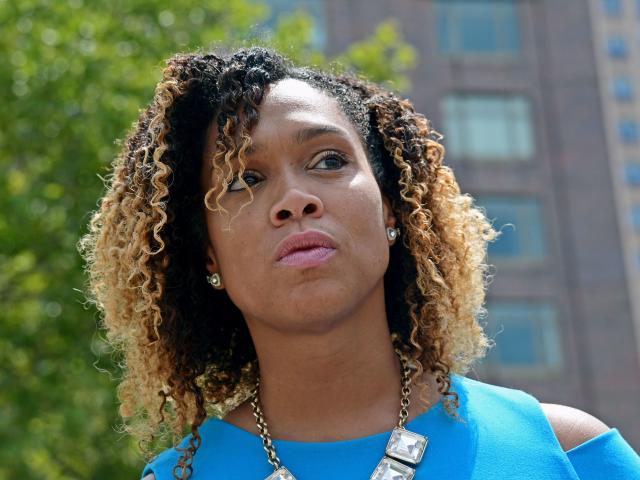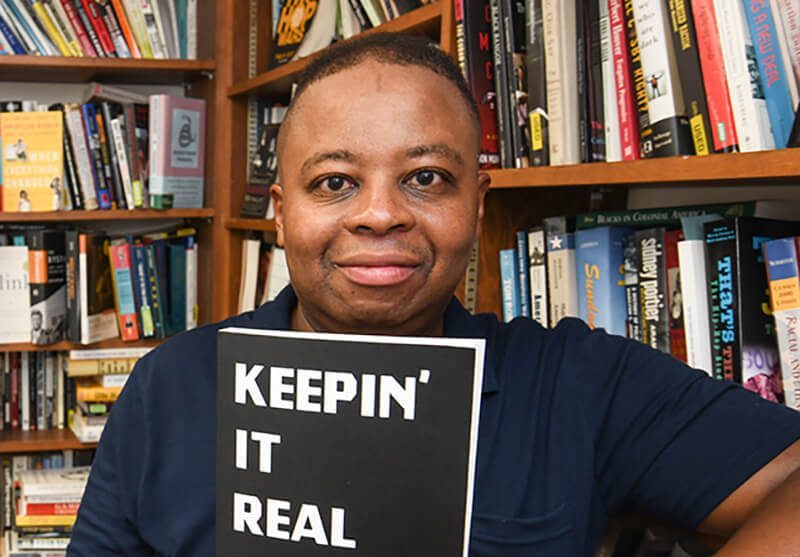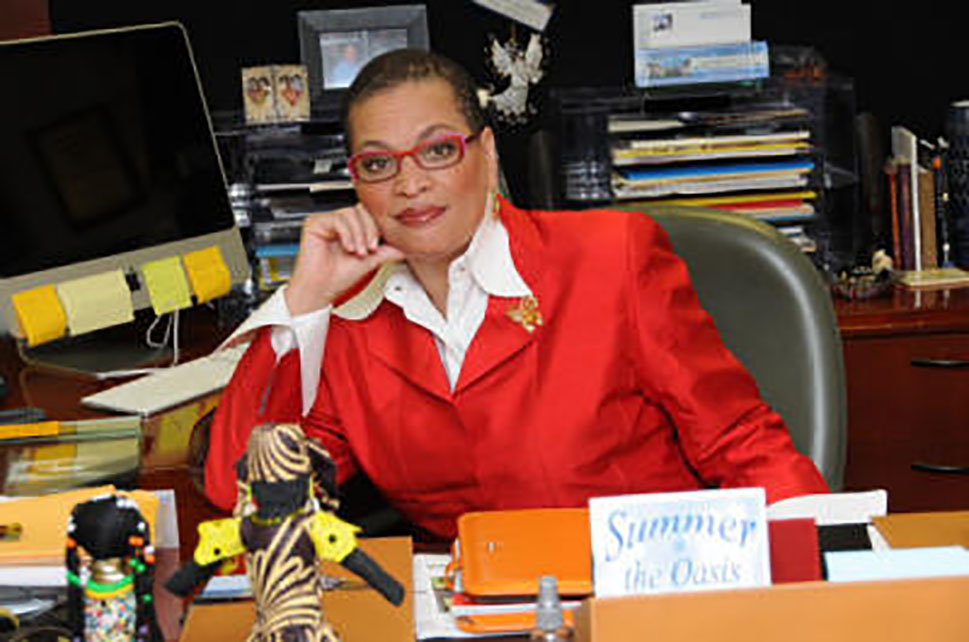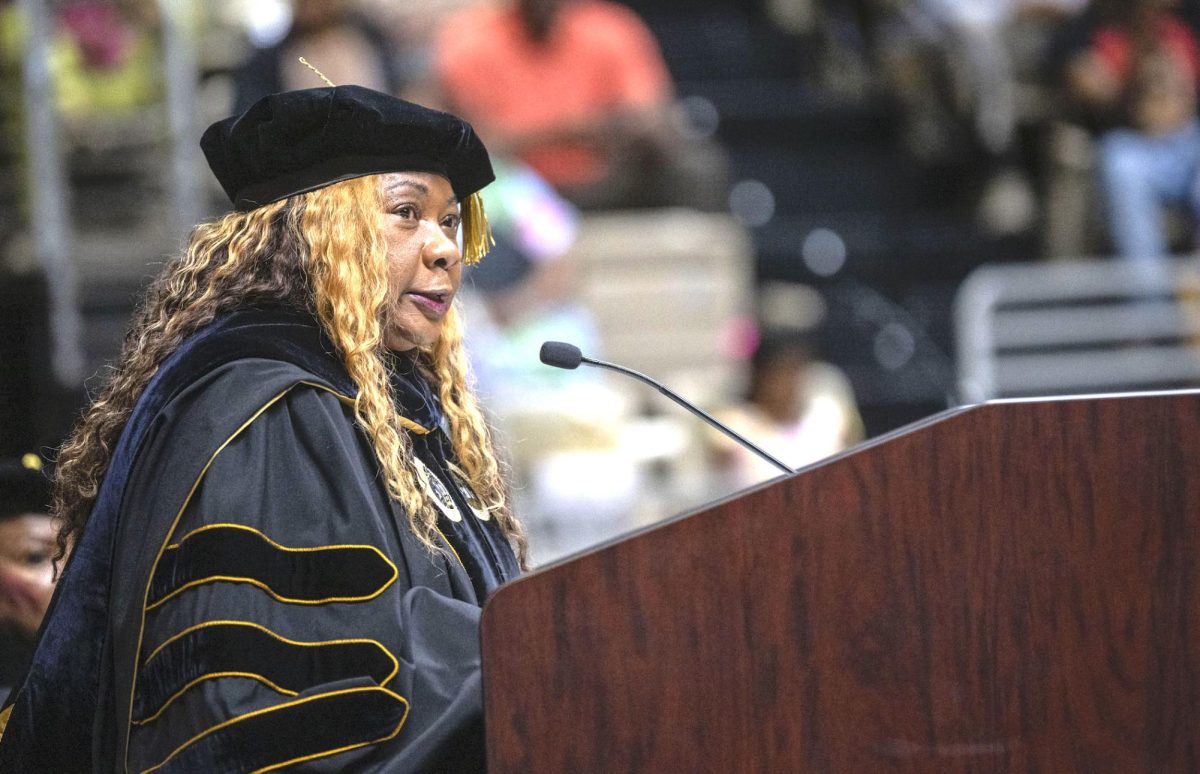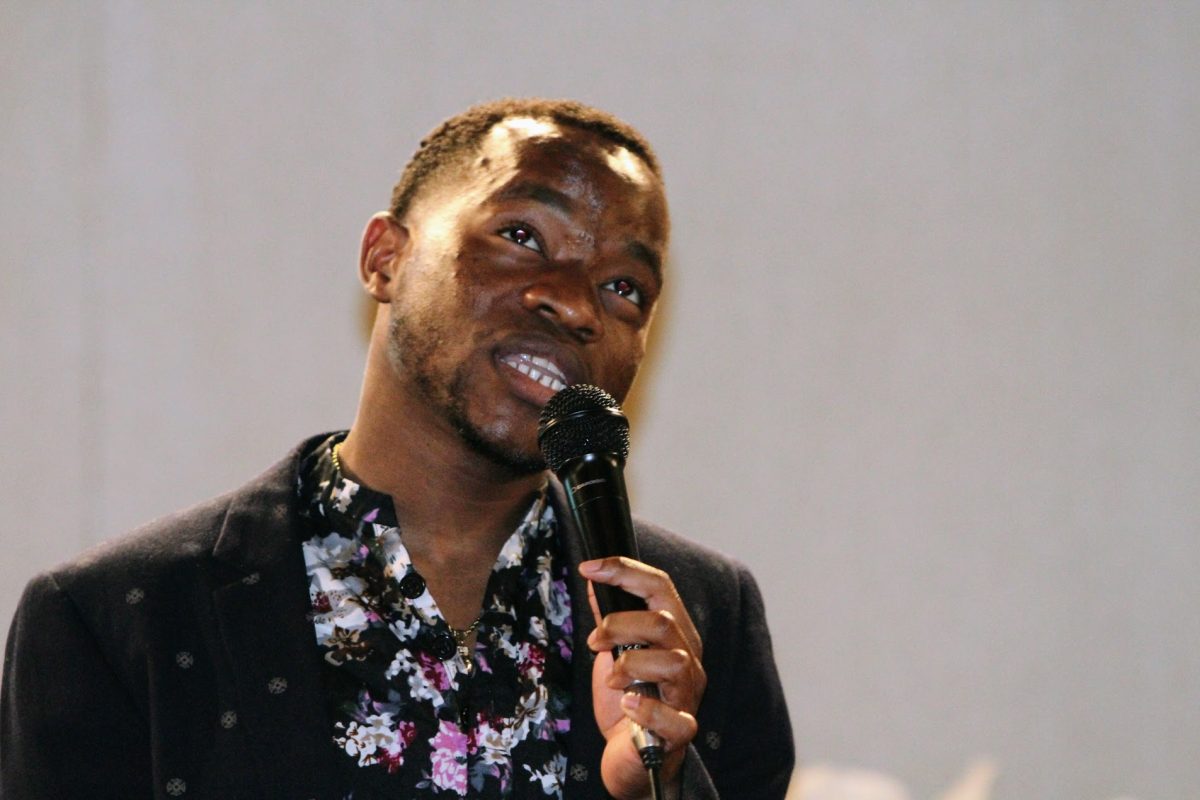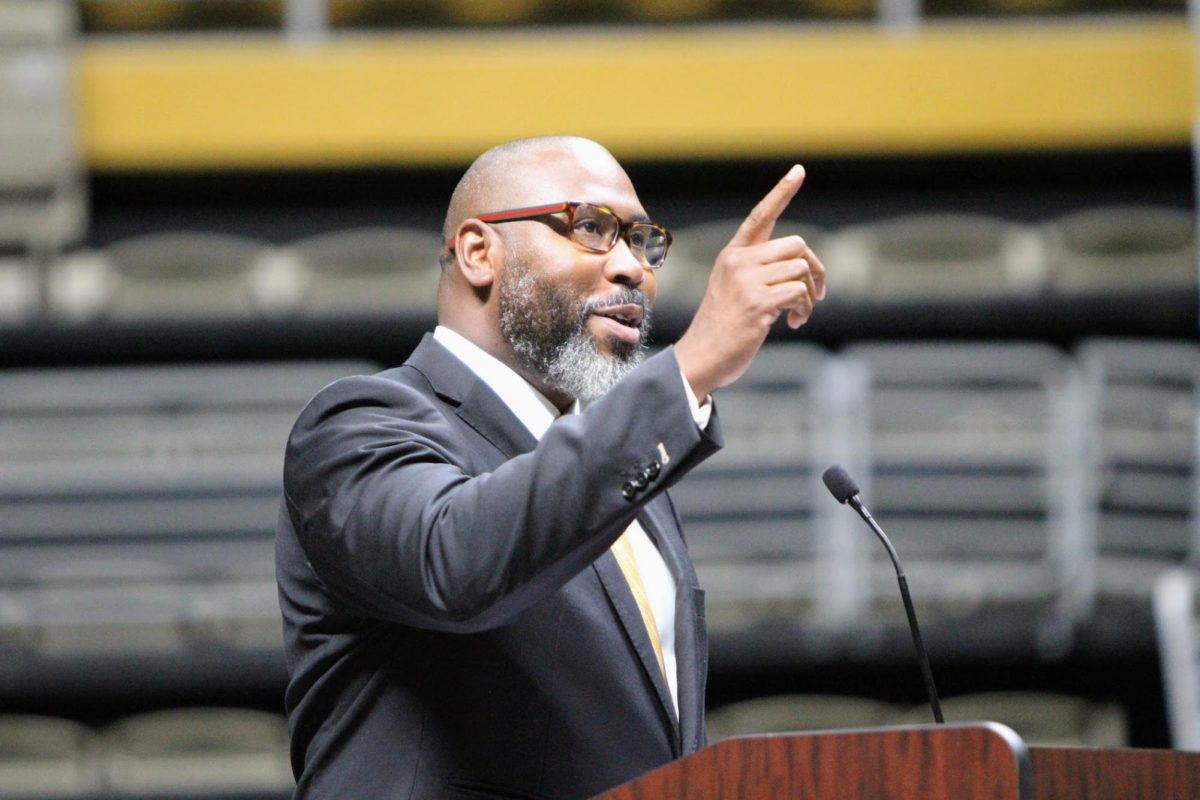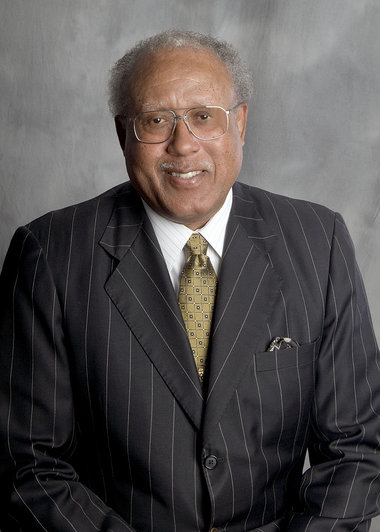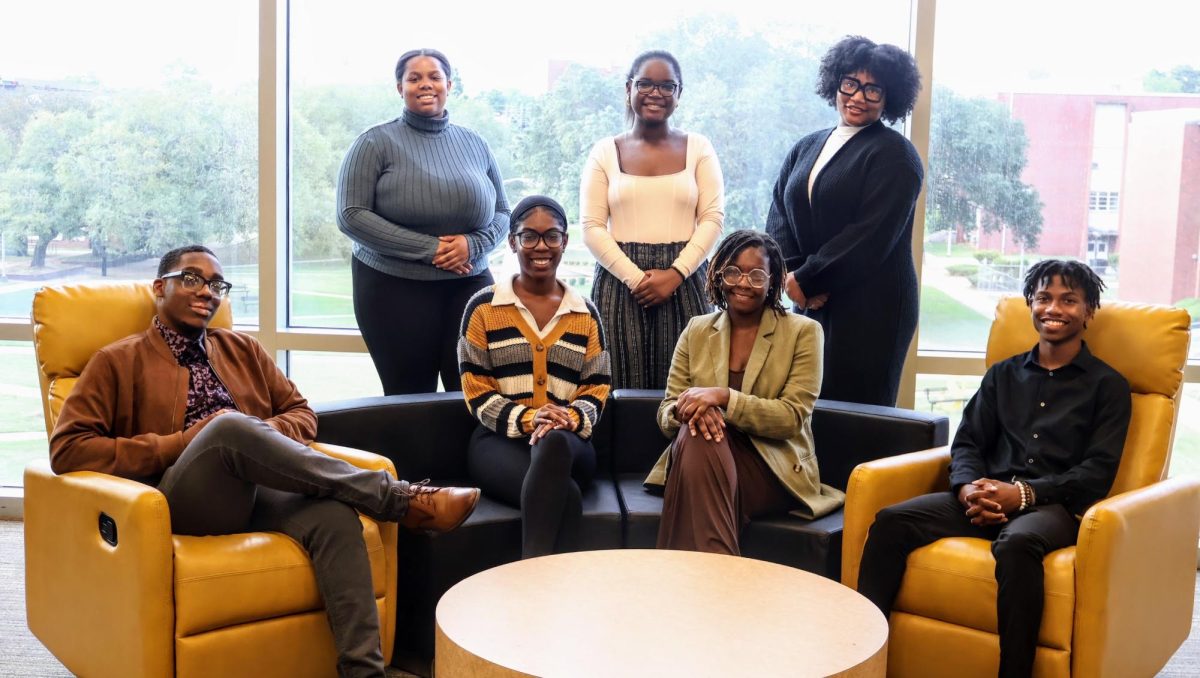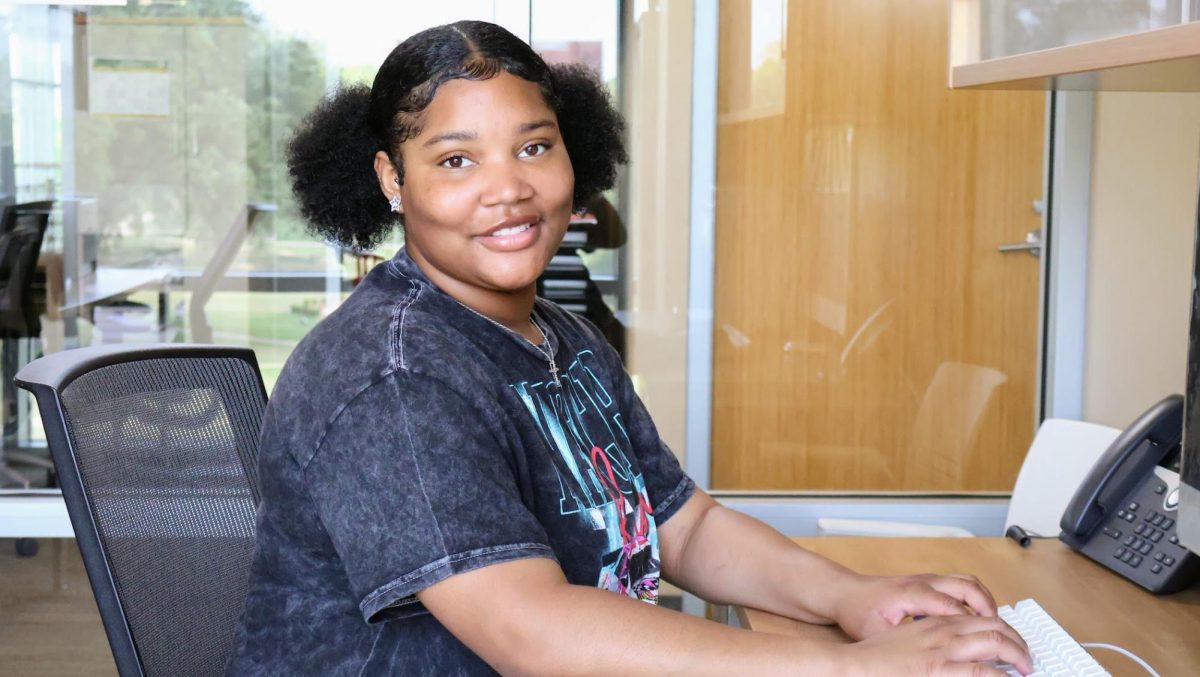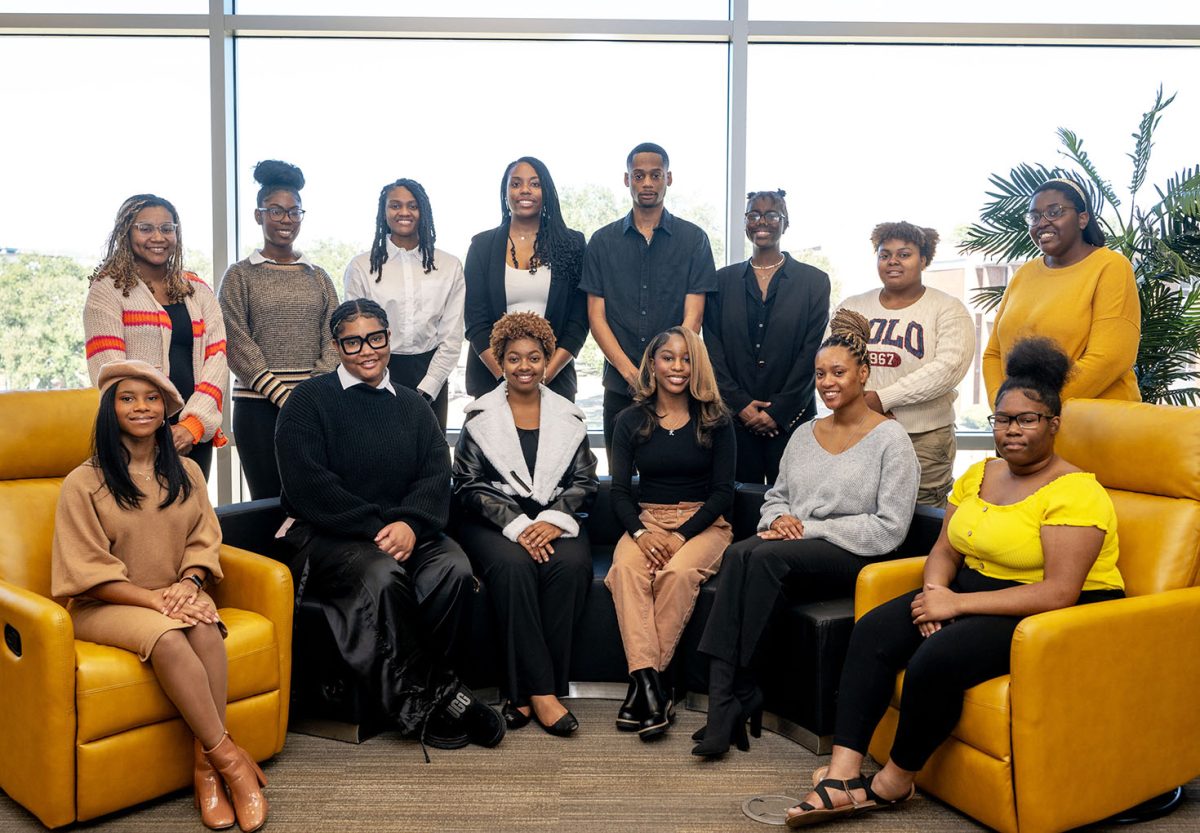Kathleen McElroy – a Black woman, a preeminent professor and journalist – was hired to revive the journalism program at Texas A&M University. Then came the backlash from white conservatives within the system who took issue with her work at the New York Times and her focus on diversity and inclusion in newsrooms. Texas A&M then backtracked and watered down its offer, which McElroy rejected. This is but the latest example of Black educators under attack — scrutinized, marginalized and scapegoated by white supremacists who would remove Black people from education.
On Thursday, Texas A&M reached a $1 million settlement with McElroy. This, after an internal investigation found that conservative university officials sabotaged her hiring — part of an effort to promote “conservative values” in the A&M journalism program and elsewhere in the university, and “control the liberal nature that those professors brought to campus.”
What happened to McElroy is nothing new and reflects a widespread pattern of attacks on Black educators. As Michael Harriot painstakingly chronicled in his four-part series in theGrio, South Carolina — once a Black-controlled state during Reconstruction — is ground zero in the attack against Black educators and culturally responsive education. In the Palmetto State, Moms for Liberty is taking out Black superintendents in majority Black school districts in the name of preserving whiteness.
Whether in college or on the K-12 level, the ongoing purge of Black teachers, professors, educators, administrators and Black studies will have a devastating impact not just on Black students but on all students, society in general and the educational system as a whole. When we hide the crimes of history and silence the truth-tellers, we empower and embolden repeat offenders.
A tenured professor at the University of Texas at Austin and a former director of its journalism school, McElroy was recruited to lead the journalism program at her alma mater, which had been dissolved in 2004.
What began as an offer for tenure and a five-year contract to lead the program — which she signed, pending approval from the Texas A&M Board of Regents — was whittled down to a five-year contract with no tenure and finally a one-year contract as a professor with no tenure and three years as director, with Texas A&M being able to fire her at will. Amid a “DEI hysteria” that led to her appointment stalling, McElroy rejected the offer.
Texas A&M President Kathy Banks, who announced her immediate retirement in light of the matter, said she was unaware of the contract changes leading to the hiring mishap. However, Banks reportedly interfered with McElroy’s hiring process, and race played a role in the watering down of the professor’s contract, according to Hart Blanton, head of Texas A&M’s department of communications and journalism, who was involved in recruiting McElroy.
“Texas A&M is going to remain a second-rate institution, and we will never be a top-tier institution if we allow individuals to accept the reality that we cannot recruit diverse people,” said veteran journalist Roland Martin, a Texas A&M alum at the Texas A&M Black Former Student Network Virtual Town Hall Meeting.
Meanwhile, the Texas A&M Faculty Senate condemned the school administration for its role in the botched hiring process. The faculty group said in a letter that it “decries the appearance of outside influence in the hiring and promotion of faculty,” which is detrimental to “the common goal of preserving Texas A&M University as a premier institution with an outstanding reputation,” as the Texas Tribune reported.
Professors and advocates of free speech alike noted that vocal right-wing pressure groups were speaking out against the hiring of McElroy.
A conservative lobbying group of Texas A&M alums also opposed the hiring of McElroy and said “she was not a good fit for this role,” and reportedly had access and complained to university officials. This group, the Rudder Association, was formed during the George Floyd Black Lives Matter protests of 2020 to protect the campus statue of Lawrence Sullivan “Sully” Ross, former Texas A&M president and Texas governor and confederate general who was praised as “the gallant Texas negro killer,” Ross was responsible for ordering the mass murder of Black Union soldiers who had surrendered outside Yazoo City, Mississippi on March 5, 1864.
The war on Black scholars
What happened to McElroy in Texas is but the latest example of a full-scale war on Black educators and Black education across the country.
Ta-Nehisi Coates recently crashed a South Carolina school board meeting on the banning of his 2015 autobiography “Between the World and Me,” which deals with racism and being Black in America. Coates lent support to a teacher who came under fire for teaching his book.
Texas and other jurisdictions have banned the teaching of Nikole Hannah-Jones’ 1619 Project. Hannah-Jones was denied tenure at the University of North Carolina-Chapel Hill — unlike her white predecessors in that position — because of white backlash over the 1619 Project. She then rejected their subsequent tenure offer and headed to Howard University. Walter Hussman, a UNC graduate who donated $25 million to the journalism school that now bears his name, told university officials he opposed Hannah-Jones.
And Black scholars face punishment from universities for speaking out on the racial issues of the day. For example, when Queen Elizabeth died — and Black, Indigenous and Irish Twitter took the opportunity to reflect on the genocidal legacy of British colonialism and imperialism — Carnegie Mellon linguistics researcher Uju Anya showed no mercy for the queen on social media and wished her an excruciating death. After billionaire Amazon founder Jeff Bezos complained about the tweet, Carnegie Mellon responded by tweeting “We do not condone the offensive and objectionable messages posted by Uju Anya…Free expression is core to the mission of higher education, however, the views she shared absolutely do not represent the values of the institution, nor the standards of discourse we seek to foster.”
When slavery benefited the enslaved
Like Texas, Florida is waging an assault on Blackness, history and academic freedom. The Florida Board of Education has approved new whitewashed standards to teach middle school students how enslaved Black people “developed skills which, in some instances, could be applied for their personal benefit.” Florida Gov. Ron DeSantis managed to both distance himself from the new curriculum standards and support them, claiming “I wasn’t involved,” but adding, “They’re probably going to show that some of the folks that eventually parlayed, you know, being a blacksmith into doing things later in life. But the reality is, all of that is rooted in whatever is factual.”
Further, Gov. DeSantis is dismantling New College — a small public liberal arts college and a self-described “college of free thinkers” with a substantial LGBTQ population — and transforming it into a dystopian white nationalist hellscape. Claiming that New College indoctrinates its students with leftist ideology, DeSantis has purged administrators and faculty and installed anti-critical race theory henchman and water carrier for white supremacy Christopher Rufo as a board member. Florida has become toxic ground for Black professors, and other faculty who are either fleeing the state or refusing to come to a place where Blackness and diversity, equity and inclusion (DEI) are under siege.
A national crisis of Black professors
This purging of Black professors and Black studies is doing real damage. Along with these concerted efforts to wipe Blackness out of education, there are examples of “racism without racists” — where racism most certainly shapes the structures of these predominantly white and male educational institutions even as individuals in these institutions may not consider themselves racist.
A mere 6% of college faculty in the U.S. are Black professors. The low numbers of Black faculty amount to a “national crisis” in higher education, reflecting a widespread belief among white academia that Black profs are too risky and not a “good fit.” It gives the impression that some colleges and universities are more reluctant to hire Black faculty than admit Black students.
Similarly, Black teachers and administrators on the K-12 level are leaving the profession due to burnout and heavy workloads, lack of support, COVID and angry parents and politicians.
U.S. public school teachers are far less diverse than their students. In recent years, nearly 80% of teachers were white, even as white children were a minority of students. Teachers of color are 20% of public school teachers, with 7% as Black teachers. In the 2020-2021 school year, fewer than 2% of teachers were Black men, while white women accounted for 61%.
Yet, the benefits of having Black educators are clear. Black professors and other faculty of color are crucial in providing students with intercultural competence, which is a person’s ability to function and communicate well across different cultures, and is critical to the development of college students in navigating a multiracial and multicultural world.
Hiring more Black teachers improves educational outcomes for Black students. Young children develop better problem-solving and learning skills when taught by teachers of the same ethnicity, with the most dramatic effects for Black and Latinx children. More Black male teachers are needed to serve as role models and mentors for Black young people. It is important for Black children and young people to see their future selves reflected at the front of the classroom — Black teachers as living examples of their future potential.
Black teachers go about the world with their own swagger and energy, their own perspective and worldview that society will not find elsewhere. How dare we deny young minds and future leaders of this energy, other than to disempower them and rob them of the tools for their success? White supremacy would say that’s the whole point, which also explains the war on Black studies.
What we are witnessing with the DEI hysteria in Florida, in Texas and elsewhere is fascism with American Jim Crow sensibilities, or what Toni Morrison called “the forces interested in fascist solutions to national problems.” In 1995 at Howard University, Morrison said “Racism may wear a new dress, buy a new pair of boots, but neither it nor its succubus twin fascism is new or can make anything new. It can only reproduce the environment that supports its own health: fear, denial and an atmosphere in which its victims have lost the will to fight.”
Erase the memory of our past and those who teach it, and you deprive us of our power and a better future. And without the knowledge of past injustices, we allow these injustices to return, as in right now. This is why the battle for Black educators and Black education is so important.










